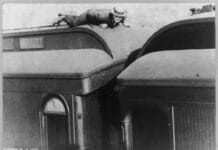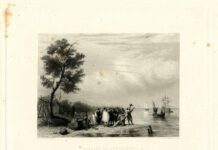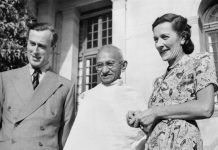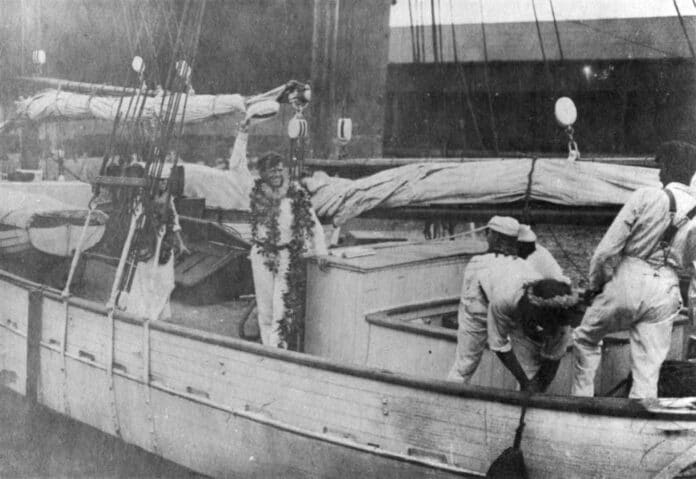
Indhold / Contents
- Biografiske artikler / biographical articles
- Sites
- Skandinaviske artikler
- Strejkebryteren / The Scab
- Articles in English
- Om bogen Jernhælen / On The Iron Heel
- Lenin & Jack London (de sidste oplæsninger/last readings for Lenin)
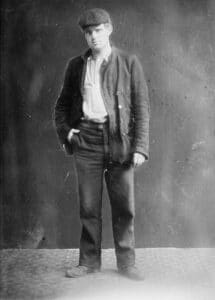
Forord
Den amerikanske Jack London fødtes i San Francisco, Calif., USA (som John Griffith Chaney), den 12. januar 1876, dør 22.11.1916 i Glen Ellen, Calif., USA.
Jack London døde som 40-årig, med en stor produktion bag sig, der afspejlede hans eget livs forløb med søfart, guldgravertilværelsen, vildmarken, erfaringerne med naturen og blandt samfundets fattige, – tilsat forfatterens socialistiske engagement.
Jack London blev især populær i sin samtid for en række romaner, der var præget af den føljeton-form, hvori han skrev dem for arbejderblade og den radikal presse verden over.
Han var 1896-1901 medlem af Socialist Labor Party of America (SLP) (“the Home of Marxism-DeLeonism”) og 1901-1916 af Socialist Party of America (SPA).
Jack Londons politiske hovedværk er Jernhælen fra 1907, som var en favorit-roman for Lev Trotskij (se nedenfor) og for redaktionsmedlem Poul Mikael Allarp og denne linksamling er i anledning af sidstnævntes runde fødselsdag.
Om romanen sagde Jack London, ifølge hustruen Charmains to-binds biografi (1921, ikke på dansk): “… jeg har skrevet ‘Jernhælen’ som en advarsel, en skildring af, hvad jeg tror, der vil ske, hvis socialisternes stemmetal ikke forøges.” (citeret i: Jack London. Introduktion til et forfatterskab. Af Sigurd Vedde (Munksgaard, 1943, side 30). Samme sted citeres en anden biografi for flg. opfattelser af romanen: “… det var den bedste håndbog i socialisme, der nogensinde var skrevet” og “… Jack betalte her sin gæld til Karl Marx ved at popularisere hans lære, ved at dramatisere socialismen og revolutionen og gøre den letforståelig for masserne”.
Pictorial Biography of Jack London. By Joe McCormick (YouTube.com, 8:42 min.)
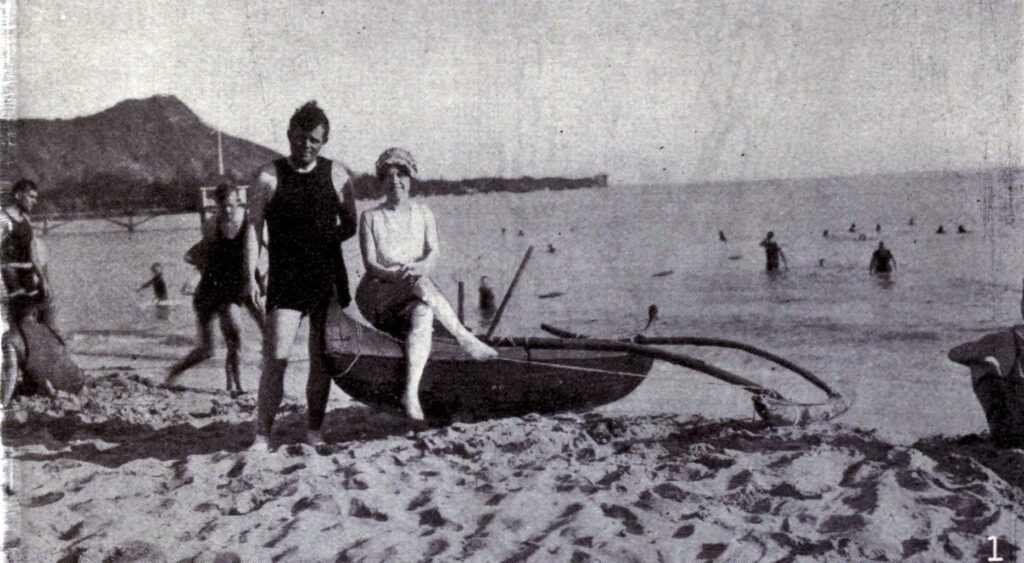
Biografiske artikler mv. / Biographical articles
- Jack London (Denstoredanske.dk)
- Jack London (Wikipedia.org). Se External links for Jack London-sites incl. links til online bøger mv.
- Jack London (Spartacus Educational)
- Jack London: How I became a Socialist (1905). Indskannet dansk tekst på Socialistisk Bibliotek: Hvorledes jeg blev Socialist.
- Jack London (Bibliografi.dk). Oversigt over udgivelser på dansk + data om de enkelte værker.
- Jack London bibliografi. Af Klaus Johanden (Hvad skovsøen gemte, 1990, 58 sider)
In the Steps of Jack London. By Vil Bykov (1962/2004) (Jacklondons.net; online at Internet Archive). “The leading Russian scholar of Jack London discusses his views, Jack’s life, and his acquaintance with Jack’s descendants.”
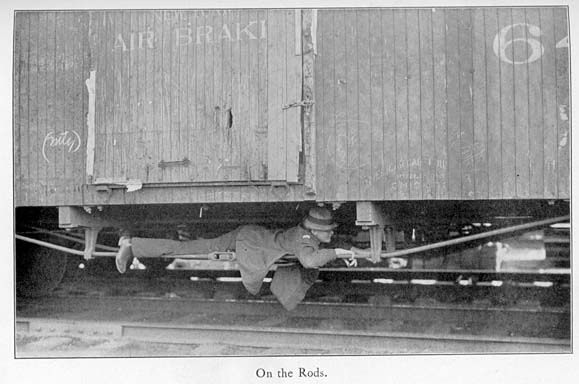
Sites
Jack London (Marxist Internet Archive; Reference Writers). With some of the best political books online.
Böcker av Jack London (Marxistarkiv.se). Romanen Järnhälen + antologierne Klasskamp + Revolution.
The World of Jack London: A Comprehensive Web Site (JackLondons.net; online at Internet Archive). Biography – Ranch Album – Writings (online novels, nonfiction works, short story collections, stories and essays, London’s journalism, poems and plays).
The Jack London Online Collection (Sonoma State University, Jean and Charles Schulz Information Center). Library – Writings – Images (Photopraphs, Artworks) – Movie memorabilia (Theater Posters, Lobby Cards, Movie Images) – Objects etc.
Jack London (The Literature Network). With Fiction, Non-Fiction, Plays, Short Stories, Essays and Poetry.
Jack London International. “This Website is maintained and developed by a group of German Jack London afficionados and experts.” Se Overview.
Jack London (Facebok site). By Random House Publisher, with paper articles, comments etc.
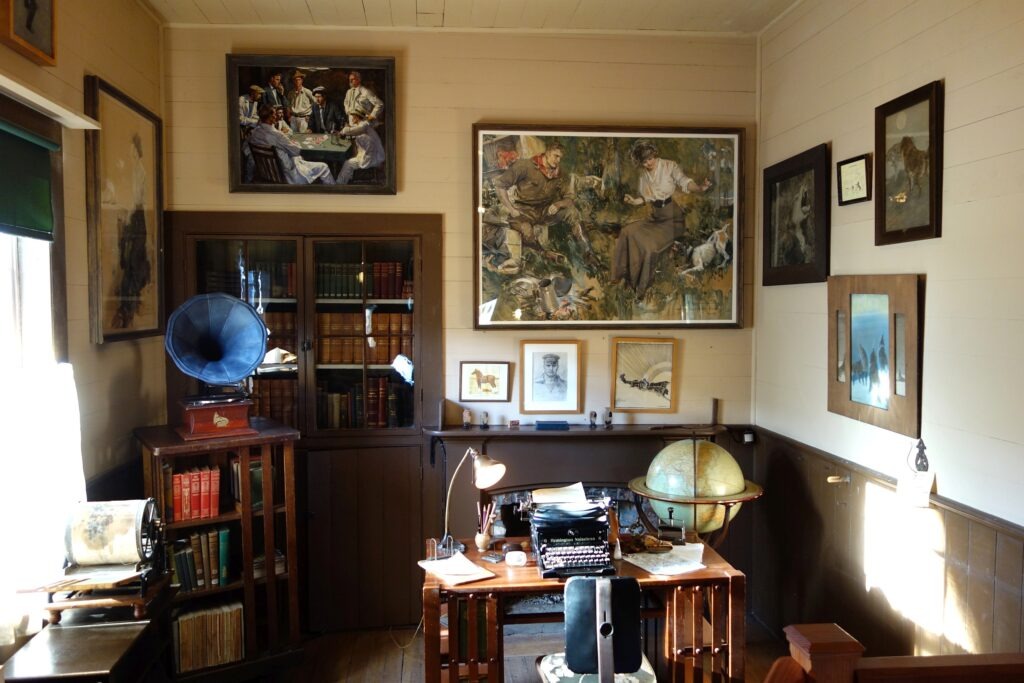
Artikler skandinavisk / Scandinavian articles
Jack London – livet på vejene gjorde ham til socialist. Af Bjarne Nielsen (Arbejderen.dk, 17. januar 2008; online på Internet Archive). “Den sande proletarforfatter skal ikke alene skrive om arbejderklassen, han skal også læses af arbejderklassen, skrev en amerikansk avis engang om Jack London, der var USA’s første arbejderforfatter.”
Den vilde natur: Om Jack London. Af Nanna Rørdam Knudsen (Litteratursiden.dk, 13. marts 2009; online på Internet Archive). Om bogen Når naturen kalder. “… teorierne om socialdarwinismen er i fuldt flor i både romaner og noveller: den stærkeste overlever, nogle gange på bekostning af andre.”
“Strejkebryderen” (1903). Af Jack London
“Om strejkebryderen – på dansk også kaldet skruebrækkeren – skriver den kendt amerikanske digter Jack London: Da vorherre var færdig med sit sidste arbejde, ormen padden og blodiglen, var der endnu et emne igen til et væsen, en aldeles ejendommelig substans, som ligner en proptrækker, hjerneskallen er fyldt med kartoffelgrød, og ryggen er lavet af lim og gamle galocher. På det sted, hvor mennesket har hjertet, har strejkebryderen blot en kødklump, som indeholder alskens råddenskab.
Når strejkebryderen viser sig på gaden, vender menneskene ryggen til ham, englene græder ved habs åsyn, og selve hr. fanden stænger helvedes porte for ham. Judas Iscariot var en gentleman i sammenhæng med strejkebryderen, for han havde dog så tilpas mange menneskelige følelser igen, at han gik hen og hængte sig; men det har strejkebryderen ikke.”
Carl Heinrich Petersen: Fra klassekampens historie i Norden (Modtryk, 2. udgave, 1975, s.102) (Til arbejderbevægelsens historie, bd. 1).
The whole article in English: The Scab (Marxists Internet Archive). See also Strikebreaker (Wikipedia.org).
Interview with Jonah Raskin, Professor and Chair of Communication Studies at Sonoma State University, about his book “The Radical Jack London: Writings on War and Revolution” (YouTube.com, 14 March 2009, 30 min.).
See also: Revolution And Other Essays. By Jack London (London, 1910; online at ProjectGutenberg).

Artikler på engelsk / Articles in English
Jack London: Flawed revolutionist (Socialist Review, Issue 418, November 2016). “Dave Gibson outlines his passionate activism for workers’ rights and his political novels, as well as the contradictions in his work.”
Remembering Jack London. By Mark T. Harris (Counterpunch, September 3, 2012). “London’s legacy as a writer and individual is a complex one. He was a socialist, and also keen on acquiring wealth. He was known at times to indulge the racial stereotypes of his era, yet in his South Seas writing it was often the native people who represented moral integrity over white colonialists and missionaries.”
The continuing impact of Jack London. By Peter Taaffe (Socialism Today, Issue 144, December-January 2010). Review of James L Haley, Wolf: the lives of Jack London (Basic Books, 2010). “From the very first day that Jack London set pen to paper, bloodless academics never hesitated to subject his writings to one-sided empty ”˜literary’ criticism. This is particularly true about his greatest novel, The Iron Heel.”
Jack London, socialist. By Paul Hampton (Workers Liberty, 13 August, 2008). Review of Jonah Raskin (ed.), The Radical Jack London: Writings on War and Revolution (University of California Press, 2008). “The younger generation of American socialists were raised on his prose … especially The People of the Abyss (1903) and The Iron Heel (1908). And his significance extended far into the international socialist movement. Lenin had a collection of London’s essays, War of the Classes (1905), in his library in the Kremlin.” (See also below “Lenin & Jack London”).
Kings of the Road. By Jonah Raskin (The Nation, July 30, 2007). “In 1907, exactly fifty years before Jack Kerouac’s On the Road reached the New York Times bestseller list, Jack London – then one of the most popular authors in America – published a memoir titled simply The Road.”
Jack London: burning man, portrait of an American socialist. By Jonah Raskin (Socialism and Democracy, Vol.19, No.2, July 2005). “A man on fire, caught up in the political fury of that era when socialism grew by leaps and bounds, he inspired a generation and found that his words reached workers and intellectuals around the world.”
From Marx to Nietzsche, erratically. By Phil Shannon (Green Left Weekly, Issue 313, April 8, 1998). Review of Alex Kershaw, Jack London: A Life (HarperCollins, 1997). “Alex Kershaw’s biography explores the contradictions that made London the most popular socialist-proletarian writer of his day, but also a proponent of humbug about the biological basis of human inequality.”
Jack London. By Hugh Dewar (International Socialism, No.96, March 1977). Review of Robert Barltrop, Jack London: the man, the writer, the rebel (Pluto Press, 1977). “[The book] must also have a strong appeal to all who are involved in the international socialist movement: for London was not only a wondrous teller of tales, read by millions throughout the world, he is also a part of the revolutionary socialist tradition, and it is in this light that Barltrop views his life activity.”
Memoirs of Jack London. By Anna Strunsky Walling (The Masses, July 1917). “His standard of life was high. He for one would have the happiness of power, of genius, of love, and the vast comforts and ease of wealth. Napoleon and Nietzsche had a part in him, but his Nietszchean philosophy became transmuted into Socialism …”
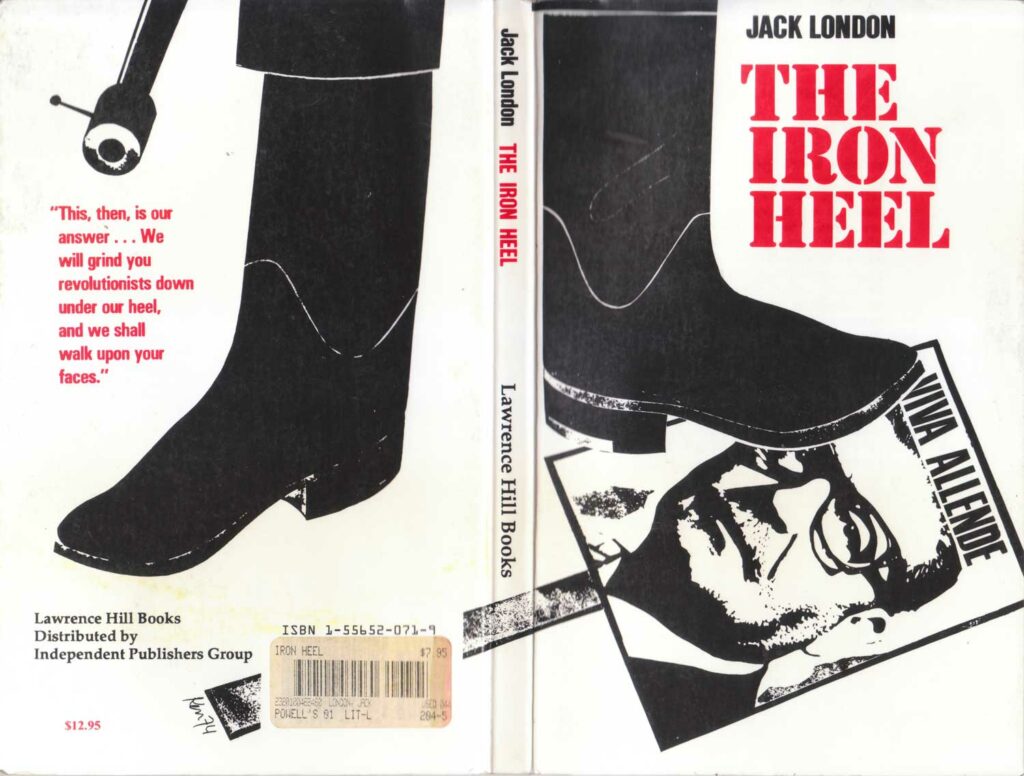
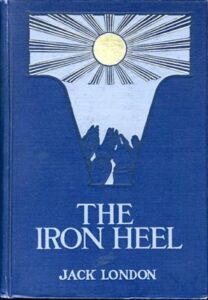
Om bogen Jernhælen / The Iron Heel
- The Iron Heel (Wikipedia.org)
Jack London’s timeless classic. By Jon Dale (Socialism Today, Issue 204, December 2016 – January 2017). “The Iron Heel describes the build-up to revolution in the USA and the ruling class’s vicious response to crush it in blood.”
Jack London strides onto the stage (SocialistWorker.org, August 8, 2016). “Geoff Bailey reviews a New York City theatrical production of The Iron Heel.
Jack London’s The Iron Heel: An enduring classic. By Jack Hood (World Socialist Web Site, 8 march 2012). “The work, set in the future and covering in detail the years 1912 to 1932, envisions a defeated working class uprising and the rise of an oligarchic dictatorship in the US, followed centuries later by a social revolution.”
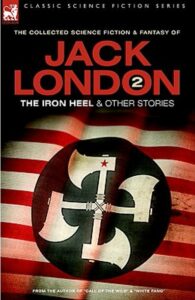
The Iron Heel at 100: Jack London – the artist as ‘Antenna of the Race’. By Jonah Raskin (Monthly Review, Vol.59, No.10, March 2008). “… in The Iron Heel, he describes a sinister conspiracy, by an oligarchy, to quash freedom of speech and freedom of assembly, imprison its outspoken opponents and critics, control news and information, install a professional army of paid mercenaries, create a secret police force, and wage global warfare for economic hegemony.”
Jack London: The Iron Heel. By Ben Granger (Spike Magazine, August 1, 2006). “The Iron Heel then is a flawed but fascinating read, undeniably entertaining, and containing some of the most deadly insights of the last century. By one of America’s best known writers too. This book is a landmark, and has been ignored for too long.”
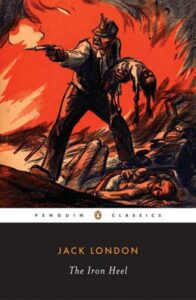
Jack London’s The Iron Heel. By Steve Trott (Socialist Standard, Issue 1241, January 2008). “… how realistic was it and how much of a socialist was Jack London? … London was not widely read in the works of socialist literature and he never really understood socialism. His politics were a blend of conflicting theories: a mixture of emotional demands for ‘social justice’ acquired during his early life, interwoven with ideas of racial superiority and social Darwinism.”
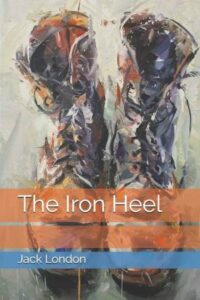
Jack London: The Iron Heel. By Ben Granger (Spike Magazine, August 1, 2006). “The Iron Heel then is a flawed but fascinating read, undeniably entertaining, and containing some of the most deadly insights of the last century. By one of America’s best known writers too. This book is a landmark, and has been ignored for too long.”
Jack London’s The Iron Heel. By and has been ignored for too long.”Graham Milner (Socialist Viewpoint, Vol.5, No.2, Febuary 2005). “The novelist Jack London (1876-1916) has been pilloried by some sections of the left for his Anglo-Saxon racism, and for adhering to an individualist philosophy partly derived from a reading of Nietzsche. But in spite of these important blemishes, London was nevertheless committed to a revolutionary socialist world outlook that was strongly influenced by the class struggle socialist ideas of Karl Marx.”
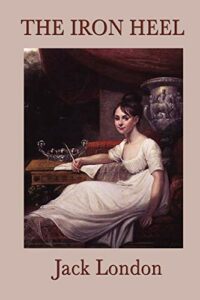
Prophecies of Fascism. By George Orwell (Tribune, July 12, 1940; The collected essays, journalism and letters of George Orwell, Vol.II, Penguin Books, 1970, p.45-49). “Where London did show special insight, however, was in realizing the transition to Socialism was not going to be automatic or evennot going to ‘perish of its own contradictions’ like a flower dying at the end of the season.”
Trotsky and the Iron Heel: his observations on the famous novel (The New International, Vol.11, No.3, April 1945). “The book produced upon me – I speak without exaggeration a deep impression … The fact is incontestable: in 1907 Jack London already foresaw and described the fascist regime as the inevitable result of the defeat of the proletarian revolution.”
Lenin & Jack London
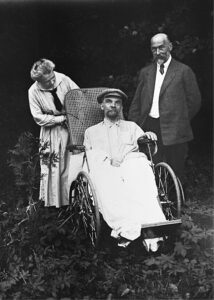
Two days before he died I read him a story by Jack London – the book is lying now on the table in his room – Love of Life*. This is a powerful story. Over a snowy waste where a human being had never set foot, a man, sick and dying from hunger, makes his way towards a pier on a river. His strength is giving out, he no longer walks, but crawls, and close behind him, also crawling, is a famished and dying wolf; in the ensuing struggle between man and wolf, the man wins; half-dead, and half-crazed, he reaches his goal. Ilyich was carried away by this story.
* Online: Love of Life and Other Stories, 1913 (Project Gutenberg)
Next day he asked me to read another London story. However, with Jack London the powerful is mixed with the exceedingly weak. The second story was altogether different — one that preached [a] bourgeois moral: the captain of a ship promises the owner that he will sell the cargo of grain at a good price; he sacrifices his life in order to keep his word. Ilyich laughed and waved his hand.
That was the last time I read to him.
Source: Nadezhda Krupskaya: Ilyich’s favourite books (Excerpt)
Om de sidste Jack London-oplæsninger for Lenin/On the last Jack London readings for Lenin:
Vil Bykov: “In the Steps of Jak London”, chapter 17: Which short story was the second one?
















